SFS Announces 2024 Career Award Winners
April 26, 2024 — The Society for Freshwater Science (SFS) today announced the winners of its 2024 Career Awards. The SFS Career Awards recognize up to five scientists each year for outstanding contributions to the field of freshwater science in the areas of environmental stewardship, service, mid-career leadership, emerging research, and excellence in scholarship.
"The SFS Career Awards recognize those who have made outstanding contributions in advancing freshwater science through research, translating this science into policy or social action, and service to SFS,” said Dr. Sherri Johnson, President of the Society. “We are proud to honor colleagues who have demonstrated excellence in research, leadership, and service, as well as communication in the field of freshwater science."
SFS will present the following awards at the Society’s 2024 Annual Meeting in Philadelphia in June:
Hynes Award for New Investigators: Ayan Fleischmann
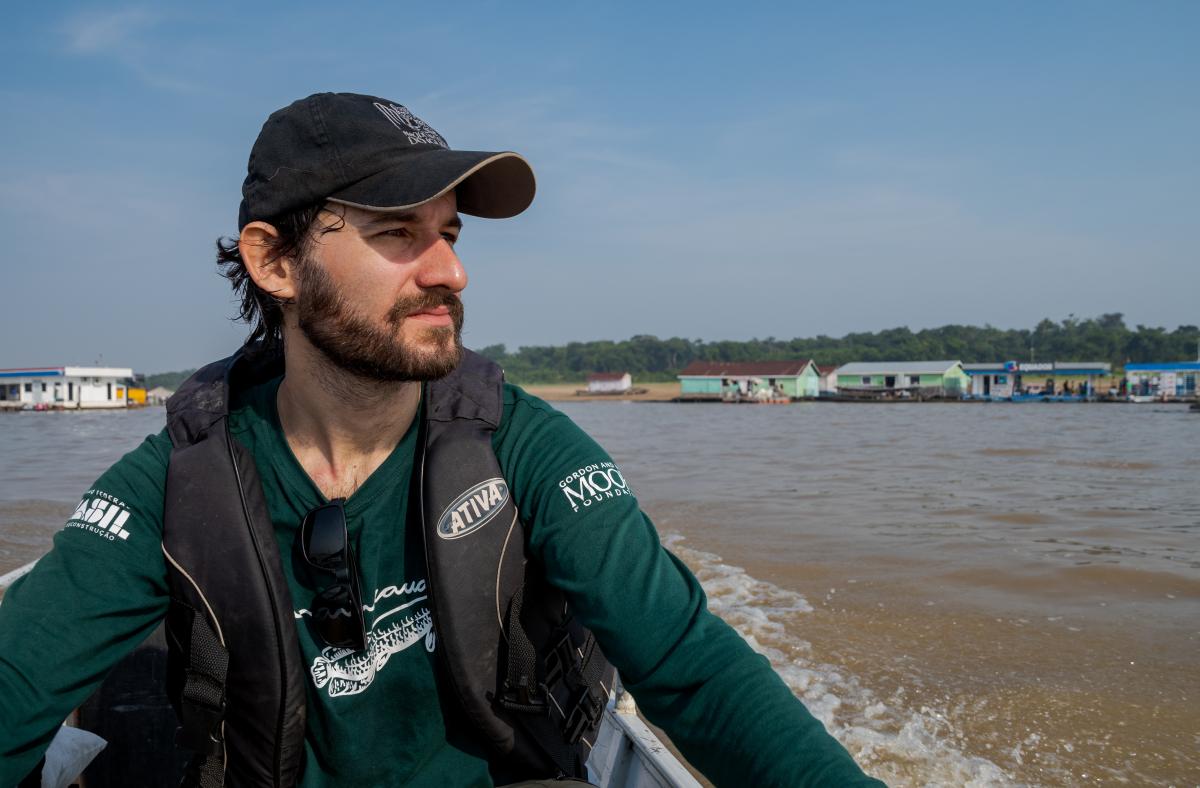 The SFS Hynes Award for New Investigators is awarded to an early-career freshwater scientist who was the senior author of an outstanding primary publication within five years of receiving their terminal degree. Dr. Ayan Fleischmann is an interdisciplinary hydrologist working with tropical hydrology and sustainable development of wetlands, especially in the Amazon region. He holds an Environmental Engineering degree from the Federal University of Rio Grande do Sul (UFRGS) in Brazil, and a PhD in Water Resources and Environmental Sanitation from UFRGS and Université Toulouse III - Paul Sabatier (France). He is currently a full researcher and leader of the Research Group on Geosciences and Environmental Dynamics in the Amazon, at the Mamirauá Institute for Sustainable Development in the Central Amazon. His research focuses on understanding the hydrology and climate of tropical wetlands and the impacts of past, current, and future climate and environmental changes on social-ecological systems associated with riverscapes. He also coordinates the “Conexões Amazônicas” network for science outreach related to the Amazon. The research detailed in the Hynes Award-winning publication, "Increased floodplain inundation in the Amazon since 1980" (ERL, 2023), presents a broad assessment of recent inundation trends and its impacts in the Amazon Basin. A 26% increase in annual maximum inundation extent along the Amazon River floodplains was estimated to have occurred since 1980. This has major implications to the region's social-ecological systems and stresses the needs of improving our knowledge of the ongoing environmental changes that threaten the largest fluvial system on Earth.
The SFS Hynes Award for New Investigators is awarded to an early-career freshwater scientist who was the senior author of an outstanding primary publication within five years of receiving their terminal degree. Dr. Ayan Fleischmann is an interdisciplinary hydrologist working with tropical hydrology and sustainable development of wetlands, especially in the Amazon region. He holds an Environmental Engineering degree from the Federal University of Rio Grande do Sul (UFRGS) in Brazil, and a PhD in Water Resources and Environmental Sanitation from UFRGS and Université Toulouse III - Paul Sabatier (France). He is currently a full researcher and leader of the Research Group on Geosciences and Environmental Dynamics in the Amazon, at the Mamirauá Institute for Sustainable Development in the Central Amazon. His research focuses on understanding the hydrology and climate of tropical wetlands and the impacts of past, current, and future climate and environmental changes on social-ecological systems associated with riverscapes. He also coordinates the “Conexões Amazônicas” network for science outreach related to the Amazon. The research detailed in the Hynes Award-winning publication, "Increased floodplain inundation in the Amazon since 1980" (ERL, 2023), presents a broad assessment of recent inundation trends and its impacts in the Amazon Basin. A 26% increase in annual maximum inundation extent along the Amazon River floodplains was estimated to have occurred since 1980. This has major implications to the region's social-ecological systems and stresses the needs of improving our knowledge of the ongoing environmental changes that threaten the largest fluvial system on Earth.
Environmental Stewardship Award: Lucinda B. Johnson
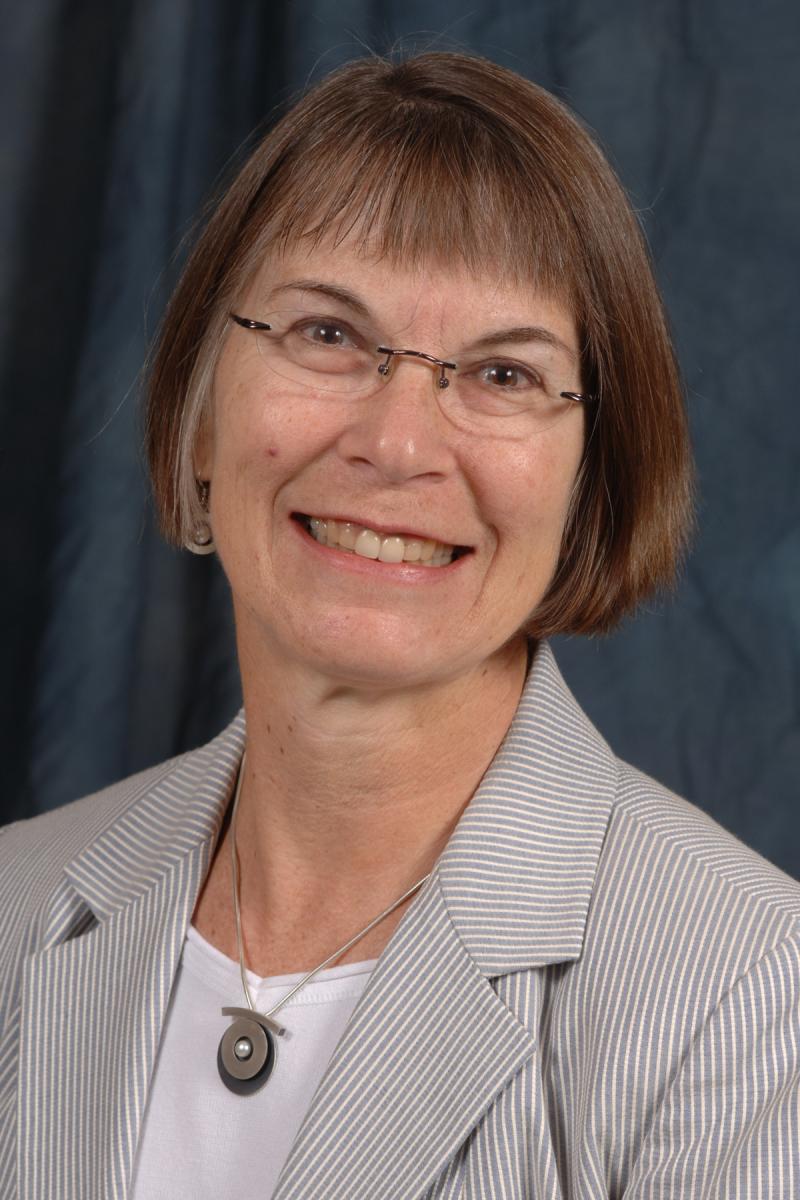 The SFS Environmental Stewardship Award recognizes successful translation of scientific knowledge into the social/public arena through policy or regulatory reform, research that enhances freshwater ecosystem rehabilitation or conservation, or public outreach and science education that strengthens public support for managing freshwater ecosystems. Dr. Lucinda B. Johnson is an aquatic and landscape ecologist whose research focuses on the impacts of multiple stressors on aquatic ecosystems with emphasis on human activities (e.g., land use) and climate change. She has recently been named a Senior Research Fellow after stepping down as the Director of Research at the Natural Resources Research Institute of the University of Minnesota. She leads and advises multidisciplinary research teams that address issues of regional to global concern, with particular emphasis on the Laurentian Great Lakes. Her research and advisory activities lie at the nexus of research, management, and policy. She currently serves as U.S. Co-Chair of the International Joint Commission’s Science Advisory Board Science Priority Committee, also serves as vice chair of the Executive Committee for EPA’s Board of Scientific Counselors (BOSC), and has served on the Minnesota Governor’s Climate Change Advisory Council. During her career, she has participated in a number of EPA Advisory Panels, including Lake Erie Phosphorus Reduction, Effects of Connectivity on Downstream Waters (an ongoing effort to expand coverage under the Clean Waters Act), Mountaintop Mining, and Benchmarks for a Conductivity Standard. As vice chair of the EPA BOSC she led the review of the agency’s research on PFAS. Dr. Johnson served as SFS Secretary for two terms, as President for one term, and was named an SFS Fellow in 2020. She credits mentors and colleagues, especially Judy Meyer and Cliff Dahm, with providing opportunities early in her career that opened doors to the deeply satisfying work involved in environmental stewardship.
The SFS Environmental Stewardship Award recognizes successful translation of scientific knowledge into the social/public arena through policy or regulatory reform, research that enhances freshwater ecosystem rehabilitation or conservation, or public outreach and science education that strengthens public support for managing freshwater ecosystems. Dr. Lucinda B. Johnson is an aquatic and landscape ecologist whose research focuses on the impacts of multiple stressors on aquatic ecosystems with emphasis on human activities (e.g., land use) and climate change. She has recently been named a Senior Research Fellow after stepping down as the Director of Research at the Natural Resources Research Institute of the University of Minnesota. She leads and advises multidisciplinary research teams that address issues of regional to global concern, with particular emphasis on the Laurentian Great Lakes. Her research and advisory activities lie at the nexus of research, management, and policy. She currently serves as U.S. Co-Chair of the International Joint Commission’s Science Advisory Board Science Priority Committee, also serves as vice chair of the Executive Committee for EPA’s Board of Scientific Counselors (BOSC), and has served on the Minnesota Governor’s Climate Change Advisory Council. During her career, she has participated in a number of EPA Advisory Panels, including Lake Erie Phosphorus Reduction, Effects of Connectivity on Downstream Waters (an ongoing effort to expand coverage under the Clean Waters Act), Mountaintop Mining, and Benchmarks for a Conductivity Standard. As vice chair of the EPA BOSC she led the review of the agency’s research on PFAS. Dr. Johnson served as SFS Secretary for two terms, as President for one term, and was named an SFS Fellow in 2020. She credits mentors and colleagues, especially Judy Meyer and Cliff Dahm, with providing opportunities early in her career that opened doors to the deeply satisfying work involved in environmental stewardship.
Distinguished Service Award: Betsy Colburn
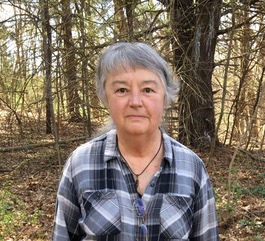 The SFS Distinguished Service Award is awarded to a Society member who has made a genuine and lasting contribution to the betterment of the Society. Betsy A. Colburn is an aquatic ecologist and an Associate of the Harvard Forest, where she has conducted research on headwater streams and vernal pools and worked on conservation-related issues. Prior to that, Betsy served 18 years as an Aquatic Ecologist and a Water Resources Specialist at the Massachusetts Audubon Society. Recently, she has been assessing potential water-quality impacts of proposals to make New England more self-sufficient in food production by bringing much of the land formerly occupied by small farms back into agricultural use. She has a longstanding interest in regulatory approaches to water quality protection, as well as a commitment to broader, non-regulatory, landscape-scale efforts to protect land and water resources. Betsy’s book, “Vernal Pools: Natural History and Conservation,” remains the only comprehensive overview of the seasonal woodland ponds that provide important breeding habitat for frogs, salamanders, and a host of invertebrate species in eastern North America. Currently, Betsy is preparing her collections of aquatic macroinvertebrates for archiving in a museum, so that they will be available for future researchers to study. Betsy has served the Society for Freshwater Science in multiple committee roles throughout her career, culminating in several years as the chair of the Finance Committee, during which her prioritization of budget transparency enabled the Society to pursue new initiatives while successfully weathering a global pandemic.
The SFS Distinguished Service Award is awarded to a Society member who has made a genuine and lasting contribution to the betterment of the Society. Betsy A. Colburn is an aquatic ecologist and an Associate of the Harvard Forest, where she has conducted research on headwater streams and vernal pools and worked on conservation-related issues. Prior to that, Betsy served 18 years as an Aquatic Ecologist and a Water Resources Specialist at the Massachusetts Audubon Society. Recently, she has been assessing potential water-quality impacts of proposals to make New England more self-sufficient in food production by bringing much of the land formerly occupied by small farms back into agricultural use. She has a longstanding interest in regulatory approaches to water quality protection, as well as a commitment to broader, non-regulatory, landscape-scale efforts to protect land and water resources. Betsy’s book, “Vernal Pools: Natural History and Conservation,” remains the only comprehensive overview of the seasonal woodland ponds that provide important breeding habitat for frogs, salamanders, and a host of invertebrate species in eastern North America. Currently, Betsy is preparing her collections of aquatic macroinvertebrates for archiving in a museum, so that they will be available for future researchers to study. Betsy has served the Society for Freshwater Science in multiple committee roles throughout her career, culminating in several years as the chair of the Finance Committee, during which her prioritization of budget transparency enabled the Society to pursue new initiatives while successfully weathering a global pandemic.
Leadership Award: Carla Atkinson
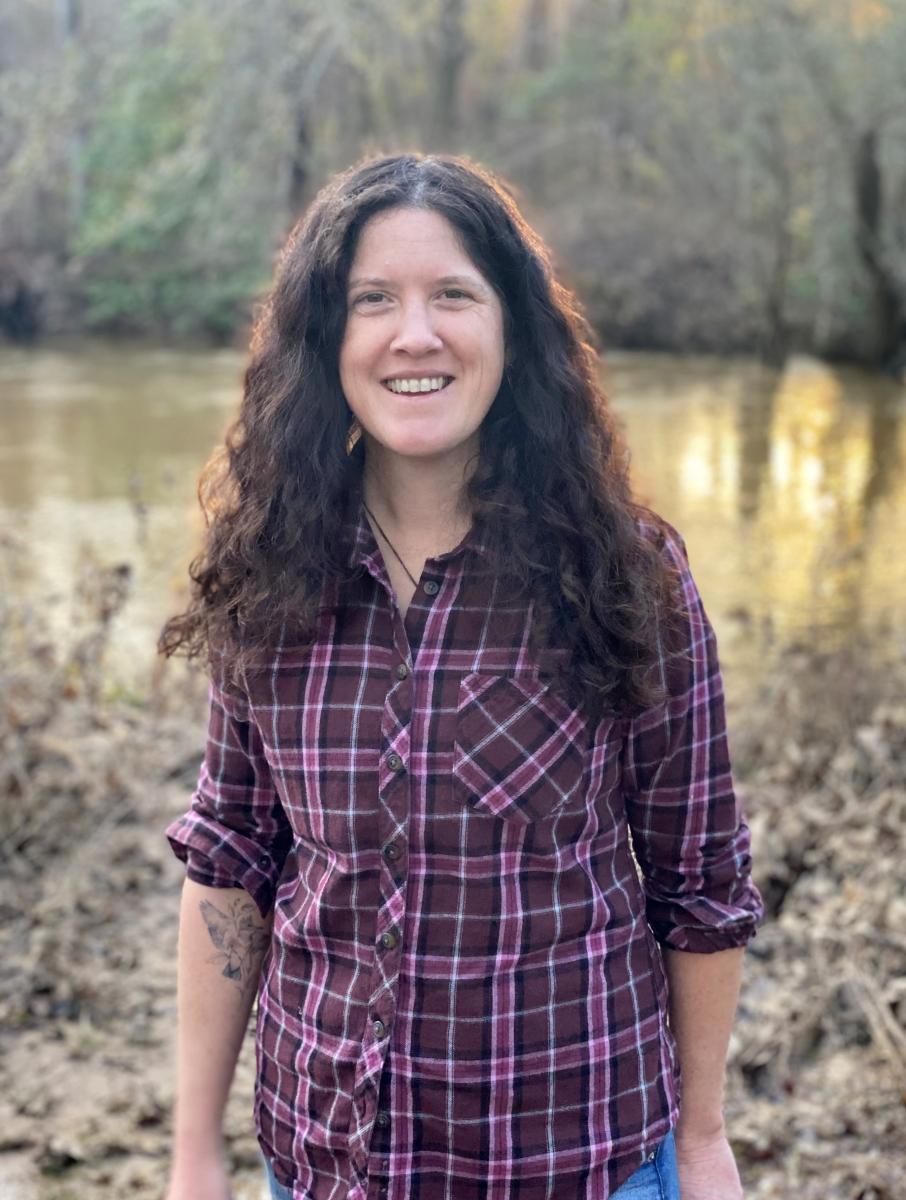 The SFS Leadership Award recognizes early or mid-career (<20 years from PhD) members for extraordinary work in furthering the Society’s mission, especially by expanding the impact of the Society and the field of freshwater science. Dr. Atkinson is an Associate Professor in the Department of Biological Sciences at the University of Alabama and has been a member of SFS for more than 15 years, serving the society in many capacities, most notably as co-founder and current President of the Southeast Chapter of SFS. Atkinson was the winner of the 2015 SFS Hynes Award for New Investigators for her paper on tracing consumer-derived nitrogen in riverine food webs (Atkinson et al 2014) and has gone on to become a global leader in the study of freshwater mussels, one of the most threatened faunal groups in aquatic ecosystems, and her work on mussel communities is fundamental to understanding the mechanisms driving declines in native mussel biodiversity. Carla’s science will guide freshwater research for years to come, but her leadership in freshwater science goes well beyond her scholarship. Her dedication to training the next generation of freshwater scientists is as impressive as it is effective. Through these and other efforts, Dr. Atkinson has proved herself to be a tireless advocate for freshwater mussels, aquatic ecology, and conservation and management of freshwater ecosystems.
The SFS Leadership Award recognizes early or mid-career (<20 years from PhD) members for extraordinary work in furthering the Society’s mission, especially by expanding the impact of the Society and the field of freshwater science. Dr. Atkinson is an Associate Professor in the Department of Biological Sciences at the University of Alabama and has been a member of SFS for more than 15 years, serving the society in many capacities, most notably as co-founder and current President of the Southeast Chapter of SFS. Atkinson was the winner of the 2015 SFS Hynes Award for New Investigators for her paper on tracing consumer-derived nitrogen in riverine food webs (Atkinson et al 2014) and has gone on to become a global leader in the study of freshwater mussels, one of the most threatened faunal groups in aquatic ecosystems, and her work on mussel communities is fundamental to understanding the mechanisms driving declines in native mussel biodiversity. Carla’s science will guide freshwater research for years to come, but her leadership in freshwater science goes well beyond her scholarship. Her dedication to training the next generation of freshwater scientists is as impressive as it is effective. Through these and other efforts, Dr. Atkinson has proved herself to be a tireless advocate for freshwater mussels, aquatic ecology, and conservation and management of freshwater ecosystems.
Award of Excellence: Stuart Bunn
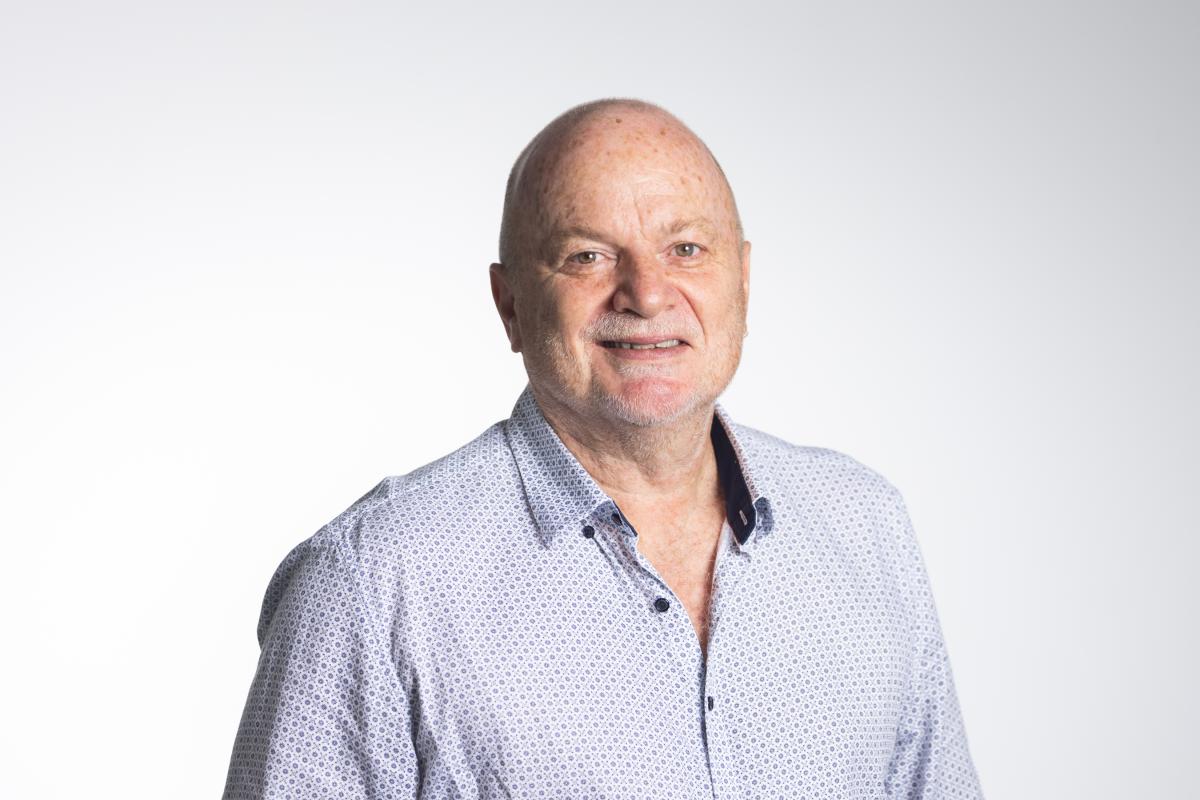 The SFS Award of Excellence is awarded to a single recipient for outstanding contributions to freshwater science. Dr. Stuart Bunn completed his PhD at the University of Western Australia in 1985 on the community structure and functional organization of small forest streams. He traveled to Canada in 1986 to take up a postdoctoral position with Professor Noel Hynes at the University of Waterloo. Bunn returned to Australia in 1988 to take up a teaching appointment at Griffith University in Brisbane and moved to a research leadership role in 1996. He is currently an Emeritus Professor at the Australian Rivers Institute and was its founding Director until mid-2022. Dr. Bunn’s major research interests are in the ecology of river and wetland systems with a particular focus on the science to underpin river management. This work has resulted in over 300 technical publications, most of which are in peer-reviewed journals. He has extensive experience working with international and Australian government agencies and industry on water resource management issues. He has led the development and implementation of several major collaborative research programs in partnership with State government agencies, industry, and universities. He has also been an active member and chair of several state and national science advisory committees. He is currently a member of the Murray-Darling Basin Authority and has previously served as a National Water Commissioner and as a Director of Land and Water Australia. Dr. Bunn was appointed to the Earth Commission, hosted by Future Earth, in 2019 and in 2022 was elected as a Fellow of the Australian Academy of Science.
The SFS Award of Excellence is awarded to a single recipient for outstanding contributions to freshwater science. Dr. Stuart Bunn completed his PhD at the University of Western Australia in 1985 on the community structure and functional organization of small forest streams. He traveled to Canada in 1986 to take up a postdoctoral position with Professor Noel Hynes at the University of Waterloo. Bunn returned to Australia in 1988 to take up a teaching appointment at Griffith University in Brisbane and moved to a research leadership role in 1996. He is currently an Emeritus Professor at the Australian Rivers Institute and was its founding Director until mid-2022. Dr. Bunn’s major research interests are in the ecology of river and wetland systems with a particular focus on the science to underpin river management. This work has resulted in over 300 technical publications, most of which are in peer-reviewed journals. He has extensive experience working with international and Australian government agencies and industry on water resource management issues. He has led the development and implementation of several major collaborative research programs in partnership with State government agencies, industry, and universities. He has also been an active member and chair of several state and national science advisory committees. He is currently a member of the Murray-Darling Basin Authority and has previously served as a National Water Commissioner and as a Director of Land and Water Australia. Dr. Bunn was appointed to the Earth Commission, hosted by Future Earth, in 2019 and in 2022 was elected as a Fellow of the Australian Academy of Science.
For more information, visit http://freshwater-science.org/awards-programs/career-awards
Download this news release as a PDF
#####
The Society for Freshwater Science (SFS) is a premier international organization of aquatic scientists. Our members study freshwater organisms, biotic communities, physical processes that affect ecosystem function, linkages between freshwater ecosystems and surrounding landscapes, habitat and water quality assessment, conservation and restoration. SFS fosters the exchange of scientific information among its membership, and with other professional societies, resource managers, policymakers, educators, and the public.

